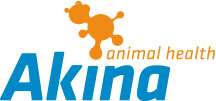National Poison Control Week
Our pets are special members of our families. We strive to provide excellent nutrition, preventative medical care, and environmental enrichment, but how can we limit the dangers of toxins? It is hard to limit exposure to every possible toxin, but knowing the most common poisons you may have in your home will help.
ASPCA Animal Poison Control has listed their top 10 most commonly reported toxins for 2015:
-
Over the counter medications
-
Human prescription medications
-
Insecticides
-
Human Foods
-
Household items
-
Veterinary medications
-
Chocolate
-
Plants
-
Rodenticides
-
Lawn and Garden products.
Keeping all medications, including supplements, chemicals, and rodenticides in closed and locked cabinets will help to limit exposure. Consider pet proofing your house, which is similar to child proofing, to significantly limit exposure to a large number of common toxins. Don’t forget about the ibuprofen or cold medications in your purse or travel bag.
Plants are difficult to avoid. Make sure to know the type of house plan and consider verifying the safety of it on the ASPCA website. They have an extensive list of toxic and non-toxic plants. A few plants to avoid include kalanchoe, sago palms and true lilies.
Chocolate is most prevalent around holidays and contains caffeine and methylxanthines, which can lead to gastrointestinal signs, abnormal heart rhythms, tremors or seizures and in severe cases death. Darker chocolate contains higher levels of these compounds, making it more toxic. Avoid leaving candy and chocolate out where it is accessible to pets. Dogs and cats can be very creative in getting onto tables and counters looking for these tasty treats.
Finally certain human foods have the potential to cause toxicoses in certain animals. Common culprits include xylitol, which can be found in sugar free gums and sugar substitutes. Grapes and raisins should not be fed to dogs, as there is a potential these may lead to kidney failure. Onions and garlic can not only lead to stomach upset, but also red blood cell damage and anemia. Avocados, while a healthy addition to our diet, can lead to cardiovascular damage and possibly death in birds. Nuts, undercooked meats and eggs, as well as yeast dough are also potentially toxic if ingested.
Should an accidental ingestion occur, the ASPCA Animal Poison Control and the PetPoison Hotlines are great resources. They can determine if the ingestion is significant, and to give treatment advice if it is required. Consult your veterinarian before attempting any home care.
If your pet ever appears in distress, including any difficulty breathing, extreme lethargy or weakness, excessive vomiting, diarrhea, or dehydration, you should have them evaluated by a veterinarian.
